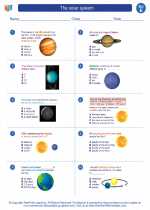Mutation: An Overview
A mutation is a permanent alteration in the DNA sequence that makes up a gene. Mutations can occur due to various factors such as exposure to radiation, chemicals, or errors in DNA replication. Mutations can be harmful, beneficial, or have no effect on an organism.
Types of Mutations
There are several types of mutations, including:
- Point Mutations: These involve a change in a single nucleotide in the DNA sequence. Point mutations can be further classified as:
- Substitution: When one nucleotide is replaced by another.
- Insertion: When an extra nucleotide is inserted into the DNA sequence.
- Deletion: When a nucleotide is removed from the DNA sequence.
- Frameshift Mutations: These occur when the addition or deletion of nucleotides shifts the reading frame of the genetic code, leading to a completely different protein being produced.
- Chromosomal Mutations: These involve changes in the structure or number of chromosomes and can have significant effects on an organism.
Effects of Mutations
The effects of mutations can vary widely. Some mutations may have no discernible effect, while others can lead to genetic disorders or diseases. In some cases, mutations can also confer a selective advantage, leading to evolutionary changes.
Study Guide
To study mutations effectively, consider the following:
- Understand the structure of DNA and how it codes for proteins.
- Learn about the different types of mutations and their specific effects on the genetic code.
- Explore real-life examples of mutations and their impact on organisms.
- Understand the role of mutations in evolution and natural selection.
- Review the mechanisms by which mutations can occur, such as DNA replication errors and environmental factors.
By mastering these concepts, you will gain a comprehensive understanding of mutations and their significance in genetics and biology.
[Mutation] Related Worksheets and Study Guides:
.◂Science Worksheets and Study Guides Fifth Grade. The solar system
Study Guide The solar system
The solar system  Worksheet/Answer key
Worksheet/Answer key The solar system
The solar system  Worksheet/Answer key
Worksheet/Answer key The solar system
The solar system  Worksheet/Answer key
Worksheet/Answer key The solar system
The solar system  Vocabulary/Answer key
Vocabulary/Answer key The solar system
The solar system  Vocabulary/Answer key
Vocabulary/Answer key The solar system
The solar system  Vocabulary/Answer key
Vocabulary/Answer key The solar system
The solar system 

 Worksheet/Answer key
Worksheet/Answer key
 Worksheet/Answer key
Worksheet/Answer key
 Worksheet/Answer key
Worksheet/Answer key
 Vocabulary/Answer key
Vocabulary/Answer key
 Vocabulary/Answer key
Vocabulary/Answer key
 Vocabulary/Answer key
Vocabulary/Answer key

The resources above cover the following skills:
Concepts of Earth Science (SD1, SD2, SD3, SD4)
The student demonstrates an understanding of the theories regarding the origin and evolution of the universe by distinguishing between stars, planets, moons, comets, and meteors. (L)
The student demonstrates an understanding of the theories regarding the origin and evolution of the universe by recognizing that the Earth is in regular and predictable motion and this motion explains the length of a day and year.
Concepts of Earth Science: A student should understand and be able to apply the concepts, processes, theories, models, evidence, and systems of earth and space sciences. A student who meets the content standard should:
Develop an understanding of the cyclical changes controlled by energy from the sun and by Earth's position and motion in our solar system.